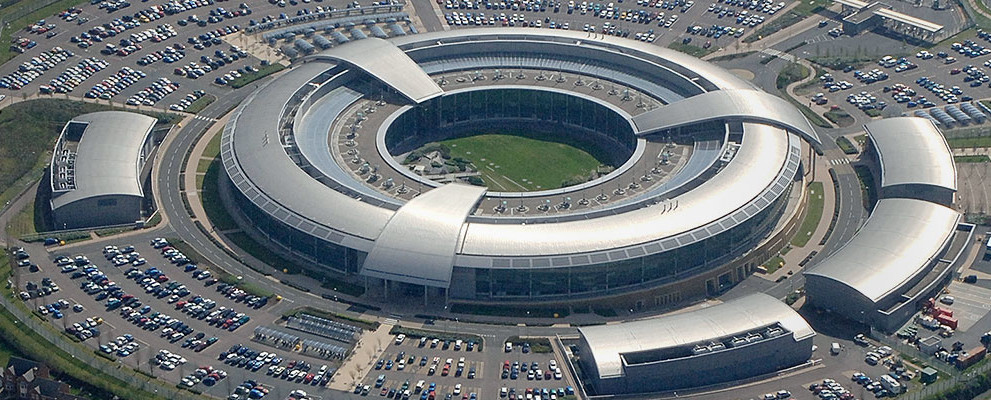The Ministry of Defence has launched 13th Signal Regiment, a dedicated Cyber Regiment, whose stated purpose is to protect vital defence networks at home and on operations overseas.
The unit was formally established on Monday, June 1, at a ceremony at Blandford, home of the Royal Signals.
As the character of warfare evolves, and the weapons used to fight those wars shift from the industrial to the information age, digital and cyber capabilities are increasingly relied upon to ensure the nation’s security and the safety of personnel overseas.
The 13th Signal Regiment will provide ‘digital armour’ around personnel operating overseas, giving commanders and their soldiers the ability to operate with confidence in their communications systems.
Defence Secretary Ben Wallace said:
This is a step-change in the modernisation of the UK Armed Forces for information warfare. Cyber-attacks are every bit as deadly as those faced on the physical battlefield, so we must prepare to defend ourselves from all those who would do us harm and 13th Signal Regiment is a vital addition to that defence.
The 13th Signal Regiment is a regiment of the British Army within 1st (UK) Signal Brigade, under the command of 6th (UK) Division, responsible for conducting information manoeuvres and unconventional warfare, in support of the whole Armed Forces.
The specialist unit will provide the basis of the new Army Cyber Information Security Operations Centre, focusing on the protection of Defence’s cyber domain, and it will work with the Royal Navy and Royal Air Force to provide secure networks for all military communications. It will also provide specialist technical support for a hub to test and implement next generation information capabilities.
Based at multiple locations around a Headquarters in Blandford, Dorset, 13th Signal Regiment will be built around a core of 250 specialist servicemen and women who possess relevant high-end technical skills.
A number of existing cyber functions are being brought together from across the Army to establish the regiment, with personnel from 15 different units represented in the first intake, plus specialist Royal Navy and RAF personnel.
13th Signal Regiment previously existed during WW2 as 1st Special Wireless Group, and helped to pioneer the use of wireless technology and high frequency wireless radios. Renamed 13th (Radio) Signal Regiment in 1959, it had operators stationed in Berlin throughout the Cold War. The unit was disbanded in 1994, when its role in Germany was no longer required.
The announcement follows a series of disclosures of illegal operations in related fields of activity by military and intelligence units and corporate contractors, and it remains to be seen if the new regiment will be more effectively supervised than its predecessors.
As one example, the UK conducted numerous covert propaganda programmes in Syria that were poorly planned, probably illegal and cost lives, according to a scathing internal review of the initiative that was obtained by Middle East Eye.
Using news agencies, social media, poster campaigns and even children’s comics, communications companies working under contract to the British government attempted to undermine both the Assad government and the Islamic State group and bolster elements within the Syrian opposition.
According to the report, the UK embarked on its propaganda efforts in the country in 2012 and stepped them up dramatically the following year as the government sought to maintain a strategic foothold after parliament had voted against any British military intervention in the conflict.
The series of programmes was given the codename Operation Volute, and those involved in the work talked not of propaganda, but of “strategic communications”.
The review examined two programmes that were managed by a unit within the MoD called Military Strategic Effects, and two managed by a group within the UK foreign office called the Counter-Daesh Communications Cell.
A fifth was managed by a cross-government programme called the Conflict, Stability and Security Fund (CSSF), which aims to tackle conflicts that threaten UK interests.
Four of the programmes were outsourced to British communications companies, some of them run by former army officers or intelligence officers. These companies set up offices in Istanbul and Amman, where they recruited Syrians to carry out much of the day-to-day work. A fifth was outsourced to a polling company based in the United States.
The five programmes were intended to amplify the work of Syrian citizen journalists; bolster groups that the British considered to be part of what it termed “the moderate armed opposition”; counter violent extremism; and encourage dissent among members of Syria’s Alawite communities.
Their combined budgets from the UK government came to £9.6m ($11.9) during 2015-16. The review noted that the programmes were intended to be guided by a strategy drawn up by the government’s National Security Council (NSC), but concluded that that strategy was both “weak” and “opaque”.
The revelations challenge some of the dominant narratives of the war promoted in the British mainstream media, notably that the UK has played only a small or no role in the conflict, and that it has supported only “moderate” opposition groups.
They also confirm that the British public can be a target for propaganda operations by their own government. LINK
The journalists involved in the propaganda programmes were hired from offices in Istanbul and Amman set up by UK government contractors with funding from Britain, the US and Canada. They were commissioned to produce TV footage, radio programmes, social media, posters, and magazines.
The projects were run by Britain’s Ministry of Defence (MOD) and military intelligence officers, and guided by the government’s National Security Council, Britain’s highest policymaking body.
The documents show that the UK was covertly running parts of the Syrian opposition. It awarded contracts to communications companies that selected and trained opposition spokespeople, managed their press offices and developed their social media accounts.
Although the propaganda initiative was primarily aimed at Syrians both inside and outside the country, the documents make clear that UK audiences could sometimes be “a specified target” of media material and that some “may reach the UK information space”.
MORE ON THE TOPIC






